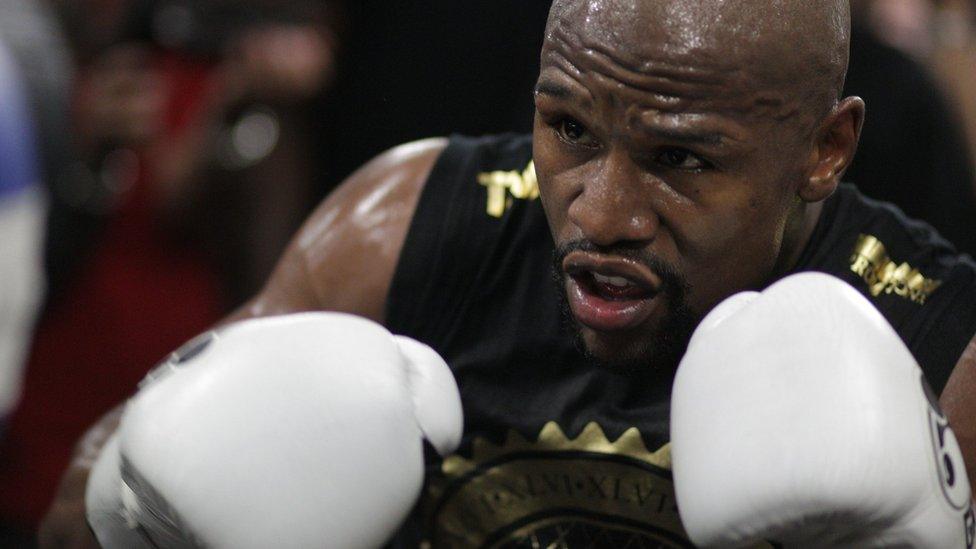Floyd Mayweather and DJ Khaled pay SEC cryptocurrency penalties
- Published

Floyd Mayweather Jr has been hit outside the boxing ring by the SEC
Boxer Floyd Mayweather Jr and music producer DJ Khaled will pay thousands of dollars to settle charges that they violated US financial laws.
The Securities and Exchange Commission announced the settlement, external on Thursday.
The US financial regulator said the men failed to disclose payments they received to promote certain cryptocurrency investments.
The men neither admitted nor denied the claims, but agreed to pay combined penalties totalling more than $750,000.
The two cases are the first the SEC has brought over touting violations involving initial coin offerings or ICOs, a relatively new investment vehicle associated with crypto-currencies.
An ICO allows people to invest in a company by buying "tokens" or "coins" that it issues.
Despite the new language, the SEC has warned investors that it views many of the offerings as investments governed by existing securities laws.
Those rules require disclosure of payments in exchange for publicity.
In this case, the SEC said Mr Mayweather received $300,000 to promote three separate offerings, including one by Centra Tech, a Miami company that the SEC accused of fraud in April.
Mr Mayweather's promotions included a message to his Twitter followers that Centra's ICO "starts in a few hours. Get yours before they sell out, I got mine…"
Mr Khaled was paid $50,000 by the same company, the SEC said.

DJ Khaled will pay thousands of dollars to settle SEC charges
A post on Mayweather's Instagram account predicted he would make a large amount of money on another ICO and a post to Twitter said: "You can call me Floyd Crypto Mayweather from now on."
The two men touted the offerings to their millions of social media followers without disclosing the payments, according to the settlement.
"This is a game changer here. Get your CTR tokens now!" Mr Khaled wrote in one post cited by the SEC.
The SEC said Mr Khaled agreed to repay the $50,000 he received for the endorsement, as well as a $100,000 fine and interest.
Mr Mayweather will repay the $300,000 he received, as well as a $300,000 fine and interest.
SEC Enforcement Division Co-Director Steven Peikin said the cases were a reminder that investors should "be sceptical of investment advice posted to social media platforms, and should not make decisions based on celebrity endorsements".
"Social media influencers are often paid promoters, not investment professionals, and the securities they're touting, regardless of whether they are issued using traditional certificates or on the blockchain, could be frauds," he said.
- Published5 September 2017

- Published2 November 2017
